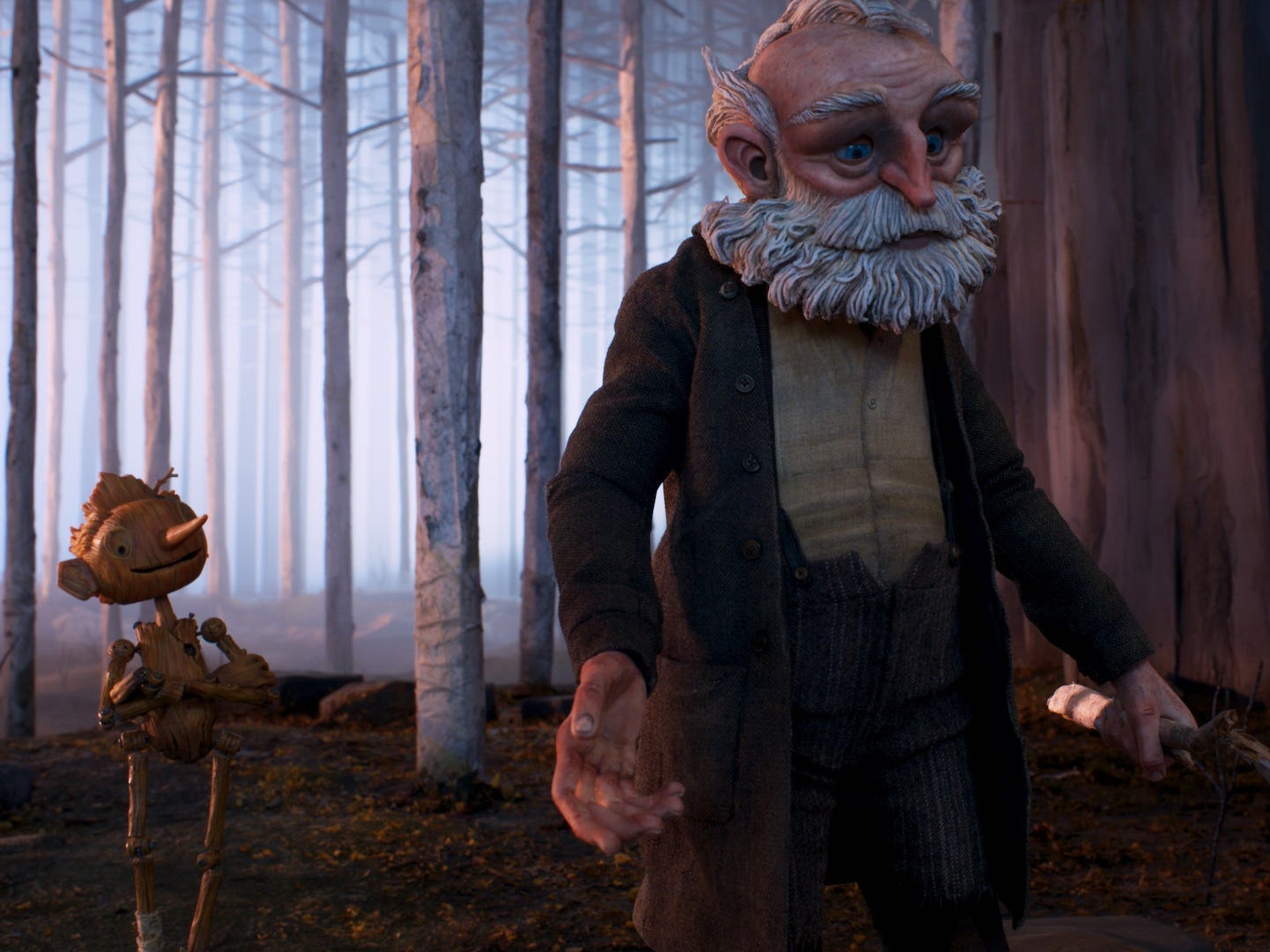I sorely underestimated the 1940 Pinocchio. What Walt Disney created with that masterpiece is pure movie magic: maybe the ultimate kids movie, filled with unforgettable songs and terrifying adventures showcasing a rock solid lesson in how to be a great human being. After the dumpster fire that was Robert Zemeckis’s cash grabbing attempt at live action, I knew Guillermo del Toro’s Pinocchio was going have a real shot to challenge the OG Pinocchio. While del Toro’s version is WAY better than the other 2022 Pinocchio, the movie still feels too burdened by the 1940 miracle version that this Netfix adaptation can’t quite best it.
Guillermo del Toro’s version sticks more closely to the Italian roots of the story, but the beats are very similar. After losing the love of his life – his son Carlo, woodcarver Geppetto (David Bradley) is completely crestfallen. One drunken night, he chops down his son’s favorite tree and crafts a wooden puppet, hoping against hope Carlo will come back to life. A Wood Sprite (Tilda Swinton) takes pity on Geppetto, and brings the puppet, Pinocchio (Gregory Mann), to life, and enlists Sebastian Cricket (Ewan McGregor) to serve as the boy’s moral compass to the best of his ability.
You can feel Guillermo del Toro at war with two pasts. The original Italian Pinocchio story is bleak and dark, having Pinocchio and Geppetto learn lessons in the hardest ways possible. On the opposite end is the Disney version which, other than some incredible scary sequences, is mostly an enjoyable musical adventure that goes easy on kids. This Pinocchio is stuck somewhere between these two. The tone vacillates between both versions of the story: Pinocchio’s childlike wonder is cruelly juxtaposed with the world around him: a cold, fascist place. This tug of war creates a confusing dissonance for the viewer, unsure of how to feel, lessening the impact of the emotional and moral lessons Guillermo del Toro wants to get across. The biggest reason for this is how the movie undercuts lessons Pinocchio learns: something happens which I won’t spoil, but it renders him consequence free, unable to really feel the impact of his bad behavior and grow into a real person.
In general, this Pinocchio might have been better if it ditched the magic after Pinocchio was created. The Disney version leans on all sorts of magical elements – Jiminy Cricket, musical ingenuity, and a Fairy who bails Pinocchio out – to make the story pop. Those elements are the weakest parts of this movie. Sebastian Cricket is used for comic effect but poorly so; the songs are on the nose and very forgettable, and the Wood Sprite elements deliver lessons but in a clumsy way. The movie opens with poor Geppetto losing his son, and anytime Pinocchio learns lessons similar to the ones his Papa has, the movie really lands in a somber, sweet way. Lessons about burdens, the short nature of life, and the struggle of being fathers and sons are new lessons Guillermo del Toro mines from the original story that work pretty well, not because they’re magical, but because they’re well earned by the time the lesson arrives.
At least Guillermo del Toro doesn’t embarrass himself like Robert Zemeckis. The stop motion works really well in his version, giving the move the feel of a fable while enhancing some of the story’s natural weirdness. I know there’s a version of Pinocchio in there that might surpass that magical Disney OG version, but if the brilliant Guillermo del Toro can’t find it, maybe I’m wishing for something that cannot be a real boy, and should just be comfortable with what it is as is.

